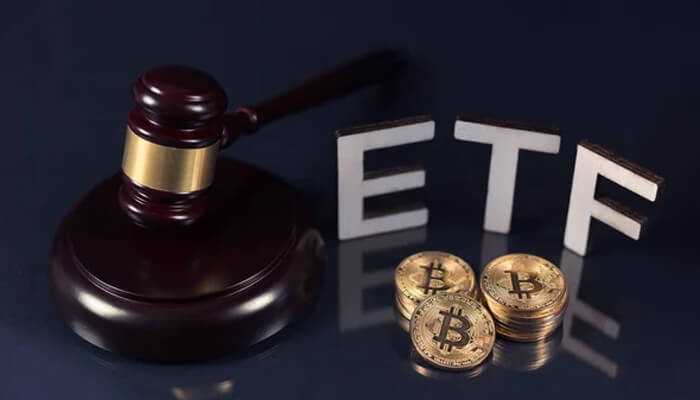The emergence of Bitcoin Exchange-Traded Funds (ETFs) has marked a full-scale evolution within the financial world, bringing cryptocurrency into mainstream funding avenues. However, navigating the prison complexities surrounding Bitcoin ETFs requires a thorough knowledge of regulatory frameworks, market dynamics, and compliance requirements. For a deeper understanding of how these developments impact investors, you can find more info here on the latest trends in Bitcoin exchange-traded funds and cryptocurrency regulations.
Understanding Bitcoin ETFs
A Bitcoin ETF is a financial product that allows investors to take advantage of exposure to Bitcoin without proudly owning the cryptocurrency. Instead, the ETF holds Bitcoin on behalf of investors, and its shares are traded on traditional stock exchanges. Bitcoin ETFs offer numerous blessings, including liquidity, ease of entry, and the ability to make investments via traditional brokerage money owed.
There are Mostly Two Kinds of Bitcoin ETFs:
Physical Bitcoin ETFs:
These ETFs keep real Bitcoin. Investors circuitously personalize Bitcoin through the ETF, which is accountable for securely storing the cryptocurrency.
Futures-primarily-based Bitcoin ETFs:
These ETFs spend money on Bitcoin futures contracts as opposed to the cryptocurrency itself. Their intention is to sell Bitcoin via derivatives in preference to physical possession.
Regulatory Landscape
The criminal framework governing Bitcoin exchange-traded funds varies by jurisdiction, with regulatory bodies playing an essential role in shaping the landscape. In the United States, the Securities and Exchange Commission (SEC) is the primary regulatory authority overseeing Bitcoin ETFs. The SEC’s technique has advanced over the years, reflecting growing acceptance of cryptocurrency investments.
SEC Approval Process:
The SEC’s approval technique for Bitcoin ETFs entails a rigorous assessment of the proposed fund’s shape, compliance measures, and market effect. Approval is frequently contingent on ensuring good enough investor protection and marketplace integrity.
Regulatory Challenges:
One of the tremendously demanding situations confronted by Bitcoin ETFs is the regulatory uncertainty surrounding cryptocurrency markets. The SEC has expressed concerns about market manipulation, liquidity, and the capability for fraud that can affect the approval process.
Global Perspectives:
Different nations have various processes for regulating Bitcoin exchange-traded funds. While a few jurisdictions have embraced cryptocurrency investments and authorized Bitcoin ETFs, others continue to be careful or have carried out stringent guidelines.
Legal Considerations for Bitcoin ETFs
Custody and Security:
One of the primary prison issues for Bitcoin ETFs is the custody and security of the underlying property. Physical Bitcoin exchange-traded funds need to make certain that the cryptocurrency is saved securely to avoid theft or loss. Custodians must adhere to stringent protection protocols and often go through everyday audits to ensure compliance.
Disclosure Requirements:
Bitcoin exchange-traded funds are subject to disclosure necessities to ensure transparency for buyers. Fund managers need to provide specified data about the ETF’s funding approach, risks, and charges. Accurate and comprehensive disclosures help investors make informed choices and understand the capabilities and risks associated with investing in Bitcoin ETFs.
Tax Implications:
The tax remedy for Bitcoin exchange-traded funds can vary depending on the jurisdiction. In many cases, profits from Bitcoin ETFs are subject to capital gains tax, much like other investment vehicles. Investors should be aware of the tax implications and talk over them with tax specialists to ensure compliance with local tax rules.
Market Manipulation and Fraud Prevention:
Regulators are especially involved in marketplace manipulation and fraud in cryptocurrency markets. Bitcoin ETFs need to put into effect measures to prevent and discover fraudulent sports, along with market manipulation and insider trading. Compliance with anti-money laundering (AML) and understand-your-consumer (KYC) policies is important to mitigate risks.
Operational Risks:
Bitcoin ETFs are exposed to operational dangers, consisting of troubles associated with the control of futures contracts, liquidity, and counterparty danger. Fund managers should deal with these risks via robust operational tactics and chance control techniques.
The Future of Bitcoin ETFs
The destiny of Bitcoin ETFs is motivated by numerous factors, including regulatory trends, market developments, and investor demand. As the cryptocurrency market matures and regulatory frameworks become better described, Bitcoin ETFs are probably to see multiplied adoption and innovation.
Regulatory Clarity:
Continued efforts with the aid of regulators to provide clearer tips for cryptocurrency investments will play a critical role in shaping the destiny of Bitcoin exchange-traded funds. Increased regulatory clarity may additionally lead to more favorable conditions for ETF approval and enlargement.
Market Evolution:
The cryptocurrency marketplace is constantly evolving, with new technologies and funding merchandise emerging. Bitcoin exchange-traded funds may evolve to consist of additional cryptocurrencies or progressive investment strategies, reflecting the dynamic nature of the market.
Investor Education:
As Bitcoin ETFs turn out to be more mainstream, investor schooling might be critical in promoting knowledge and responsible investment. Educational tasks can help traders navigate the complexities of cryptocurrency investments and make knowledgeable selections.
Technological Advancements:
Advances in the era, including blockchain and virtual asset control, may also enhance the safety and efficiency of Bitcoin exchange-traded funds. Technological improvements can contribute to progressed custody answers and streamlined operational approaches.
Conclusion
Navigating the legal complexities of Bitcoin ETFs calls for a complete understanding of regulatory frameworks, compliance requirements, and marketplace dynamics. As Bitcoin exchange-traded funds retain prominence in the economic panorama, investors, fund managers, and regulators must collaborate to cope with prison-demanding situations and ensure a secure and transparent funding environment. By staying informed and proactive, stakeholders can make contributions to the successful integration of Bitcoin exchange-traded funds into conventional funding portfolios, paving the way for future innovation and growth inside the cryptocurrency marketplace.



